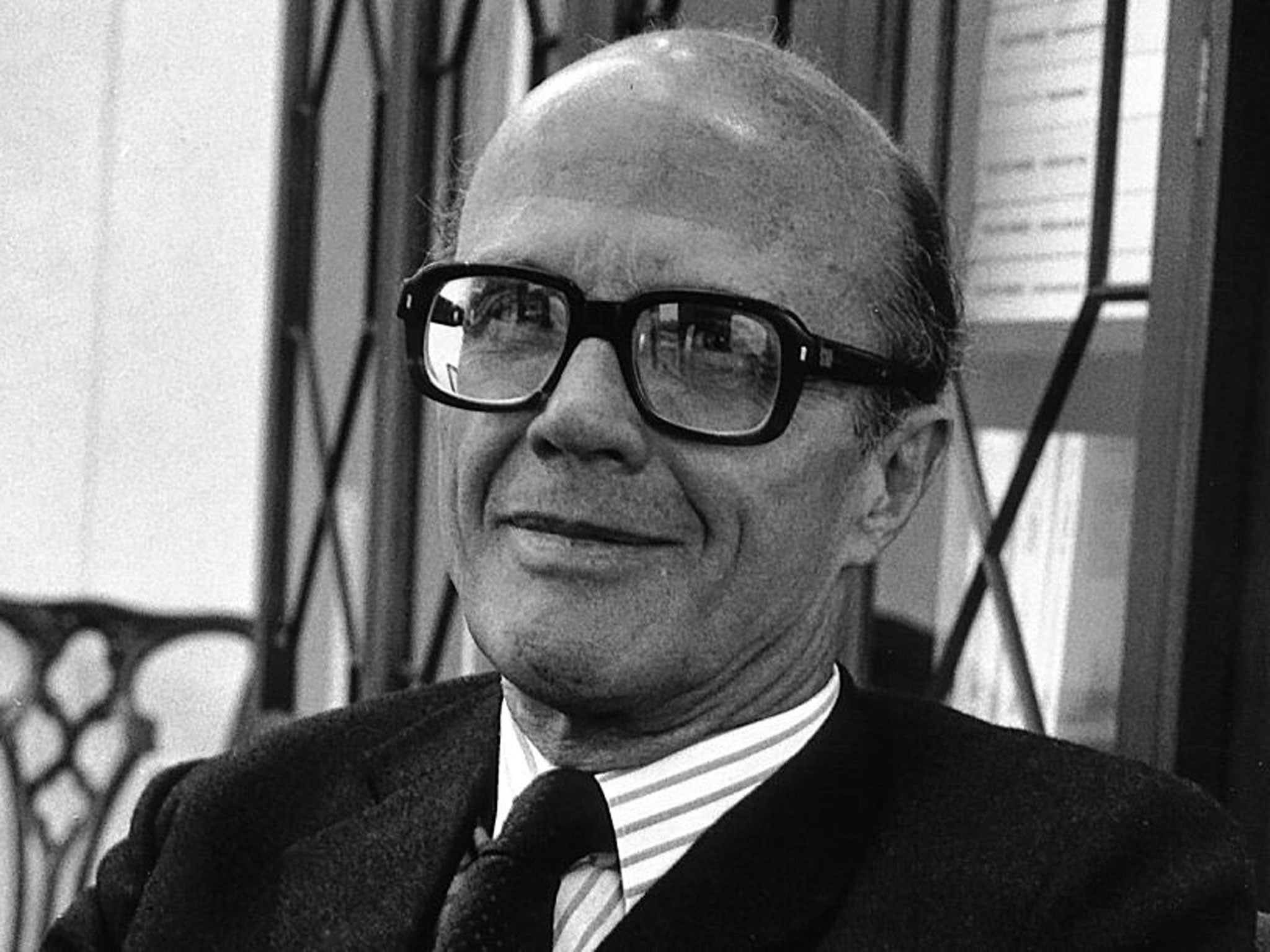Sir Michael Butler: Europhile whose work on Britain's behalf culminated in his securing the EU budget rebate that Thatcher longed for

Michael Butler had been at the forefront of Britain's international relations longer than the Queen when he neatly tied up the details of the nation's budget rebate from the European Union with a word to the German finance ministry. His quiet tête à tête with the future head of the German central bank, Professor Hans Tietmeyer – then finance ministry deputy secretary-general – without telling the then Prime Minister, Margaret Thatcher, was against the rules and could have lost him his job as Britain's Permanent Representative to the European Commission, but his intrigue worked.
That dinner à deux in Luxembourg led the Germans to propose the 1984 "money back" deal for Britain in expressions acceptable to her European partners, on the use of which the Treasury had been sticking. Getting another member to propose them was Sir Michael's choice – with the crucial 1984 summit at Fontainebleau approaching and speed of the essence – in preference to trying to persuade the Prime Minister to overrule the Treasury.
"I sold Hans this concept of the VAT share/expenditure share gap," he explained. "He no doubt went back to the finance ministry who would have said, 'Well I mean that's better than the net contribution,' which it was at the time. Anyhow at the very next Foreign Ministers' Council the German delegation proposed that the settlement should be on this basis and that's what we got at Fontainebleau."
Michael Dacres Butler was educated at Winchester and read Politics, Philosophy and Economics at Trinity College Oxford, where his economics tutor was the future Labour Foreign Secretary Anthony Crosland. He joined the Foreign Office in 1950 after three years in the army, and was present on the French desk there when the first telegram inviting British entry to the then European Coal and Steel Community arrived. He considered that Britain signed up – when she at last did in 1973 – on unfavourable financial terms. He had postings at the British Mission to the UN from 1952-56, Baghdad until 1958, Paris from 1961 until 1965 and worked on Europe with the Joint Intelligence Committee in London from 1965-68.
He heard while skiing with his wife Ann in the Rocky Mountains, in the middle of a sabbatical teaching at Harvard University's Centre for International Affairs in 1970, that the job of Head of the European Integration Department of the Foreign Office was open to him, and he eagerly accepted. "It was living in America that had made me realise that I was in fact a European," he said. Thereafter he worked with both Labour and Conservative governments on making the best of Britain's relations with the emerging European Union, which he enthusiastically supported.
He used straws in the wind to carry the budget debate further, such as concessions on goods such as New Zealand butter and the idea of a "correcting mechanism" for the British contribution hammered out under a British Labour government in the 1970s. So when Margaret Thatcher came to power in 1979 the Europhile diplomat and the iconoclastic Tory politician saw eye to eye. But the negotiations at Fontainebleau, when Thatcher – whom he described as "a very mysterious mixture of calculation and shooting from the hip" – kept him up regularly until three in the morning, proved so tiring that he plumped for retirement the following year. But he gave her the credit for negotiating, once the budget problem was out of the way, the Single European Act, "which was by far the biggest sharing of sovereignty that had taken place since we joined, in fact perhaps since the European Community had been created."
John Major, Chancellor in 1990 and seeking more attention for Britain's warnings about the dangers of a single EU currency, turned to Butler, who had taken up a directorship at Hambros Bank. Major wrote in his autobiography, "I learned ... of an idea being worked up by ... Sir Michael. ... The inventor of the "hard ecu" [European Currency Unit] was Paul Richards from Samuel Montagu, and Michael Butler became its energetic publicist and promoter. ... Butler sketched out a plan for a 'common currency' based on the ecu that would permit ecu notes to be put into circulation." But Britain's "hard ecu" proposals came too late, Butler thought, and after disillusionment with the Major government, which he thought "covered itself with the worst shame we've ever suffered in the European Community" by a policy of vetoing agreements, he looked to Tony Blair's New Labour as "the best hope."
Blair, while leader of the opposition in 1996, appointed Butler as his special representative on EU enlargement, and when Labour came to power Butler sat on Foreign Secretary Robin Cook's Task Force in 1997 on preparing the British Presidency of the European Commission. He concern had always been, he said in an interview in 1998 for EU Historical Archives, "that Britain was not an obstacle to the process of European integration proceeding".
Butler published Europe: More Than A Continent in 1986, as well as several books, some with Chinese co-authors, on his great love, 17th century Chinese porcelain, of which he amassed a notable collection.
Michael Dacres Butler, diplomat: born Nairobi 27 February 1927; CMG 1975, KCMG 1980, GCMG 1984; married 1951 Ann (two sons, two daughters); died Dorset 24 December 2013.
Subscribe to Independent Premium to bookmark this article
Want to bookmark your favourite articles and stories to read or reference later? Start your Independent Premium subscription today.

Join our commenting forum
Join thought-provoking conversations, follow other Independent readers and see their replies